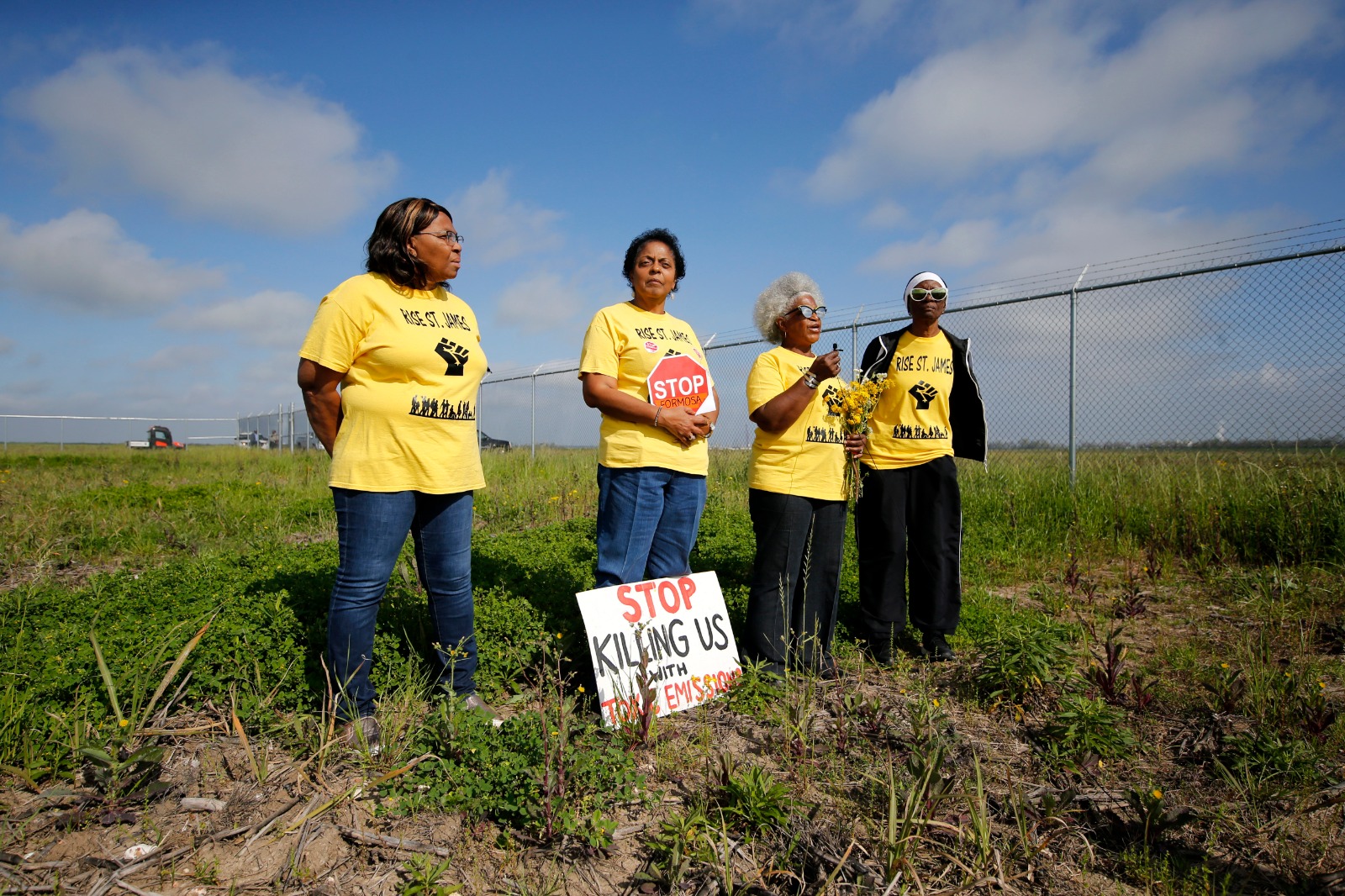A years-long battle to stop the chemical company Formosa from building a massive petrochemical complex along the Mississippi River in southern Louisiana swung in favor of residents on Wednesday when a state district judge withdrew the air permits that the company needs to operate.
The Taiwan-based chemical giant first announced its plans to build the $9.4 billion petrochemical complex on a sprawling 2,400-acre site in St. James Parish in April 2018. If approved, the so-called “Sunshine Project” would have been one of the largest and most expensive industrial projects in the state’s history. Governor John Bel Edwards, a Democrat, celebrated it as a boon for economic development that would bring 1,200 new jobs to the region.
But the project encountered swift opposition from the local community.
St. James is perched on a bend of the lower Mississippi River in a region known as “Cancer Alley” for its concentration of plants that spew cancer-causing chemicals. Numerous large industrial facilities already operate in the parish. A ProPublica investigation in 2019 found that the air around Formosa’s proposed site already contained more cancer-causing pollution than 99.6 percent of industrialized areas of the country. If the complex was to be built, the analysis estimated, the level of cancer-causing industrial pollution in some parts of the parish could more than triple.
“Formosa was wrong to even want to come in here and poison us because we’re already being poisoned,” Sharon Lavigne, a lifelong parish resident, told Grist. After Formosa selected her hometown for its new chemical complex, Lavigne founded Rise St. James, a faith-based grassroots organization with the explicit goal of stopping Formosa’s plans.
That’s when the company’s legal struggles began. In 2019, on behalf of Rise St. James, the environmental watchdog Earthjustice sued the Louisiana Department of Environmental Quality for its decision to grant Formosa its permits to emit air pollution. Around the same time, another environmental group, the Center for Biological Diversity, filed suit against the Army Corps of Engineers for issuing the company its Clean Water Act permits. The federal agency voluntarily suspended the water permits last year and required its staff to develop a full environmental impact statement, citing environmental justice concerns. That review has yet to be released.
In her ruling, Judge Trudy White called the state agency’s environmental justice analysis “arbitrary and capricious” and said that it “does not comply with the agency’s public trustee duties.”
Despite the judge’s ruling, Formosa reportedly said on Thursday that it still intends to build its complex in St. James.
But without air or water permits, the company will have to “go back to the drawing board” and rework its permits from scratch, said Corinne Van Dalen, a senior attorney at Earthjustice.
The district court’s ruling comes on the heels of another major victory for the residents of St. James. Last week, the Louisiana Department of Environmental Quality announced that it was withdrawing the permit application for South Louisiana Methanol’s proposed chemical complex. The project site was located between two historic Black neighborhoods, including Freetown, a community founded by formerly enslaved people.
“These developments mark a new day for the residents of St. James,” Van Dalen told Grist. “This predominantly Black area was once seen as ground zero for new petrochemical developments. And the residents galvanized this enormous campaign and they fought and they fought and they’re winning. Goliath is wobbling. And now they get to have a new St. James.”




